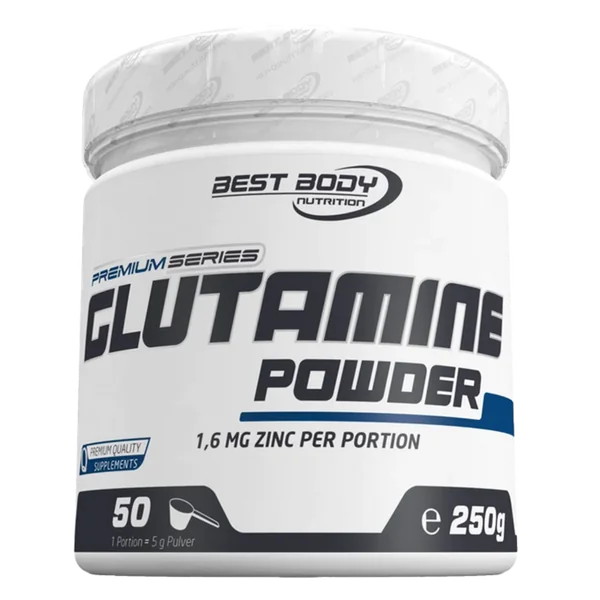Glutamine protects muscle proteins from post-workout catabolism (protein breakdown) and supports muscle tissue regeneration . It supports the incorporation of amino acids into muscle proteins, stimulates the growth of new muscle mass , supports the increase in muscle glycogen stores and alleviates the state of exhaustion after physical exertion. Of all amino acids in muscles, glutamine makes up 60% and its consumption is up to 5 times higher during training.
L-glutamine is an amino acid that also has a strong influence on the immune system . Our body can create L-glutamine itself, but it often happens, especially in active athletes, that the body's needs are greater than its production.
A dose of glutamine of 5 g in the morning and 5 g in the evening can significantly affect regeneration and especially the cells of the immune system. It should not be forgotten that active athletes have long-term reduced immunity. The result can be an increased susceptibility to viral diseases, especially during flu and epidemics.
One of the important tasks of glutamine is the transfer of nitrogen between tissues. Nitrogen is a very important substance in the body because it is essential for wound healing and approximately a third of the nitrogen in the body comes from the amino acid glutamine.
Recommended dosage of Best Body L-Glutamine powder:
- 5 g of powder with water daily after training. On non-training days, it is recommended to take after waking up.
Warning: No substitute for a balanced and varied diet and a healthy lifestyle. Keep out of reach of children. Store the product closed in a dry place, protected from light and at room temperature up to 25°C.
Composition:
L-glutamine (99.9%), zinc citrate.
Allergens:
Does not contain.
| in 100g | |
| Energy value | 1699 kJ |
| 399 kcal | |
| Fats | 1.5 grams |
| Of which saturated fatty acids | 1.5 grams |
| Carbohydrates | 0.1g |
| Of which sugars | 0.1g |
| Proteins | 99.9 grams |
| Salt | 0.1g |
| 1 dose | |
| Zinc | 1.5 mg |
| L-Glutamine | 5 mg |


